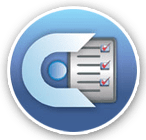Here are some strategies commonly used to mitigate cheating in online exams:
Secure Browser: Using a secure browser or Proctoring software can help prevent students from accessing unauthorized resources or websites during the exam. These tools often lock down the testing environment and monitor student activity, flagging suspicious behavior.
Remote Proctoring: Remote proctoring solutions utilize webcams and microphones to monitor students during the exam. Proctors or artificial intelligence (AI) algorithms may be used to detect potential cheating behaviors, such as looking away from the screen or talking to someone.
Randomized Question Banks: Creating a Question bank with a large pool of questions and randomizing the selection for each student can make it harder for students to share answers or collaborate.
Time Limits and Timed Sections: Setting time limits for exams or specific sections can help ensure that students have limited time to search for answers or seek external assistance.
Unique Exam Links or Access Codes: Providing each student with a unique exam link or access code can help track and identify individuals accessing the exam, making it harder for unauthorized individuals to join.
Academic Integrity Policies: Clearly communicating and enforcing academic integrity policies can help set expectations and deter students from engaging in cheating behaviors. This includes outlining the consequences of cheating and promoting a culture of academic honesty.
It's important to note that while these measures can help reduce cheating, they may not catch all instances, and there are potential limitations and privacy concerns associated with certain monitoring methods. Additionally, technological advancements and creative cheating techniques can pose ongoing challenges. Institutions often combine multiple strategies and adapt their approaches to continually improve exam security.







